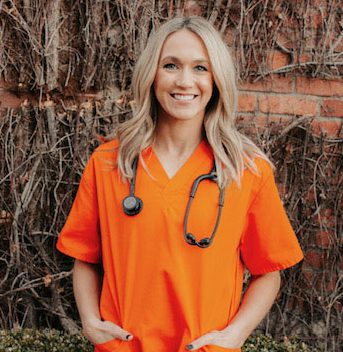What Is It?
Measles is a highly contagious disease caused by a virus. It can affect anyone but is most common in children. Measles infects the respiratory tract and then spreads throughout the body. Symptoms include a high fever, cough, runny nose, red watery eyes, and body rash. Measles can be dangerous in infants and young children causing serious complications such as ear infections, diarrhea, pneumonia, brain swelling, and death.
How Does It Spread?
Measles is spread by contact with respiratory droplets from an infected person’s nose or mouth after coughing or sneezing. When others breathe in these droplets or touch a contaminated surface then touch their eyes, nose, or mouth they can become infected. It can be spread by an affected person before they even know they are sick. You can visit CDC.org to learn more about the spread of measles.
How Can We Limit Spread?
Community-wide vaccination is the most effective way to prevent measles. Vaccines trigger the body’s immune system by exposing it to small amounts of an antigen to help the body recognize certain diseases and learn to fight them by producing antibodies. This protects the individual from disease by increasing the body’s natural defenses. The best way to protect against measles is to get the measles-mumps-rubella vaccine (MMR vaccine). Here is an easy-to-read schedule of recommended immunizations for children from birth to 6 years. To learn more about how you can encourage parents to keep their child’s vaccinations up to date, visit this CCHC (Child Care Health Consultant) Blog 8 FAQs About Vaccinations in Early Care & Education.
Additionally, the virus remains active and contagious in the air or on infected surfaces for up to two hours. It is important to include daily cleaning practices to remove germs and prevent the spread to others. To limit the spread of germs in your program be sure to incorporate a routine cleaning schedule, provide proper air ventilation, teach children how to properly cover their coughs and sneezes, and encourage regular handwashing throughout the day. Contact a CCHC Nurse Consultant in your area if you have questions about daily cleaning practices or proper hand washing.
How Do I Report It?
Licensing requires that child care providers report any suspected or confirmed case of measles to their local health department within 4 hours. You must notify all parents/guardians and staff when cases of measles are present in your program. It is important to keep the identity of the infected child(ren) confidential. You can find a complete list of reportable diseases and contact information at kdhe.ks.gov.
April 24-30, 2024 is World Immunization Week and aims to educate the public about why vaccines are necessary for the health of millions of people around the world. Encouraging parents to keep their child’s vaccinations current is an important step to preventing measles from spreading in your child care program. Child Care providers wanting to improve immunization tracking and documentation or review their current illness and exclusion policies can receive one-on-one support from a CCHC Nurse Consultant, at no cost to the provider. You can reach a Nurse Consultant in your area at 785-823-3343 or by going to http://ks.childcareaware.org/cchc.
Contact Your CCHC Consultant Today
-

Kim Siroky
Child Care Nurse Consultant, CCAKS
Kim Siroky obtained her nursing degree from Oklahoma State University in OKC and has been working as a Registered Nurse in the clinic and home setting for the past three years. Kim joined Child Care Aware of Kansas as a Nurse Consultant in November of 2023 and is working with child care providers in the northern half of Kansas. In her free time, she enjoys spending time with her family, mountain biking, and training Brazilian Jiu-Jitsu.






